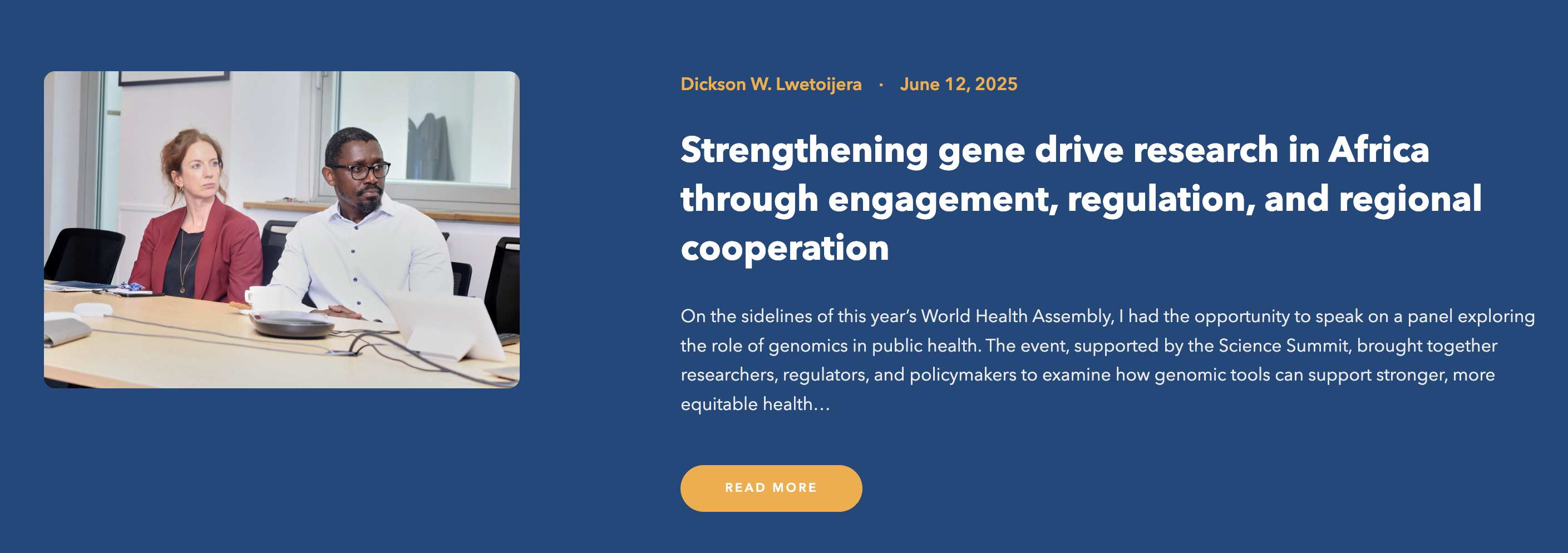
BLOG: Ifakara scientist shares insights on leadership for gene drive research in East Africa

The Gene Drive Network has featured Ifakara Health Institute Principal Research Scientist, Dr. Dickson Lwetoijera, in a blog post on its official website. The Network seeks to raise awareness of the value of gene drive research for the public good.
In his blog—first published on June 12, 2025 — Dr. Lwetoijera breaks down what it will take to ensure gene drive research delivers on its promise: led by African institutions, shaped by local communities, and supported by strong regional frameworks.
He reports on his and colleagues’ participation at the sidelines of this year’s World Health Assembly, where he joined a compelling panel that shared insights on how genomic tools—including gene drive technologies—could reshape the future of public health in Africa.
In a thought-provoking discussion alongside Imperial College’s Prof. Georges Christophides and fellow Ifakara scientist Dr. Brian B. Tarimo, the spotlight turned to the fight against malaria and the critical role of African leadership, regulation, and public trust.
The panel didn’t shy away from the hard facts: over 8 million malaria cases and nearly 25,000 deaths in Tanzania in 2023 alone. Existing tools are faltering under the weight of insecticide resistance, and new strategies like gene drive are becoming increasingly vital. But their success hinges on more than science. It requires robust governance, community buy-in, and cross-border cooperation.
More: About the Gene Drive Network
The Outreach Network for Gene Drive Research seeks to raise awareness of the value of gene drive research for the public good. The Network supports coordination among members, information sharing, and engagement with key stakeholders, in order to raise awareness of the value of gene drive research for the public good and of the need for continuous efforts in its advancement.
>> Read the full blog here: Strengthening gene drive research in Africa through engagement, regulation, and regional cooperation
